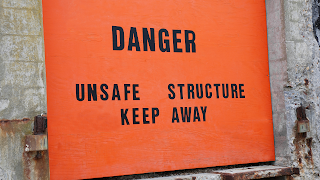Finding Your Voice Disrupts Manipulation
For a long time, I didn’t have a voice.
My childhood shaped me to believe my voice didn’t matter.
Anytime I spoke up, I was labeled as having a “bad attitude” while my cousins, who were allowed to explode in anger, were called “angels.” That kind of double standard breaks something inside a child. It trains you to silence yourself before the world ever does.
A Life Coach on TikTok recently said something that pulled this all back to the surface:
“The moment you find your voice, they get upset.”
She’s right. It applies to family, friends, partners, and even coworkers.
Finding your voice disrupts the pattern of how people use you.
It shatters the comfortable script they’ve written for you; the script where you’re always the helper, the supporter, the one who never says no.
This is why you can show up for someone repeatedly, but the moment you say, “I can’t this time,” all hell breaks loose. That’s not love. That’s not loyalty. That’s manipulation.
And here’s the part people don’t like to say out loud:
Men aren’t the only ones who study you, pour into you, and then control you with your own vulnerabilities. Women do it. Friends do it. Church members do it. Family does it. The flattery is often just the sugar coating on control.
When you’ve been silenced as a child, learning to trust yourself as an adult is exhausting. You’re not just battling your own doubts; you’re fighting a world full of people carrying the same spirit as those who once silenced you. They want compliance, not connection. They want yes-men, not truth-tellers.
And for Black women, the stakes are even higher.
We’re often labeled as “angry” for simply existing, for raising an eyebrow, for saying no. I’ll never forget being in HR at a job years ago when a white woman accused me of something I hadn’t done. As I sat there, stunned, the HR Director looked at me and said, “OMG, you look like you want to attack me.”
I remember my heart pounding, my fists clenching, not because I wanted to attack her but because the rage of being falsely painted as a threat was suffocating. I got up, left, and screamed in my car, a scream I’m sure someone heard even if I didn’t see them.
Years later, healed but still remembering, I ran into that same woman at the mall. She locked eyes with me, nervous. I walked up and said, “You can speak. Don’t worry, I won’t attack you,” and then walked off.
It wasn’t petty. It was power.
It was proof I had a voice now.
Because here’s the truth:
Finding your voice will cost you relationships built on your silence.
However, it will also free you from a lifetime of being taken advantage of.
Reflection Prompts:
When was the first time you realized your voice upset someone who benefited from your silence?
How has being silenced in childhood shaped the way you show up in adulthood?
What situations today still make you hesitate to speak up? Why?
How would your life change if you spoke up fully, even when it’s uncomfortable?
If you’ve been silenced, I know how heavy it feels even to whisper your truth. But freedom doesn’t come from staying quiet; it comes from using your voice, even if it shakes at first. Start small. Say no when you mean no. Speak up when you’re overlooked. Correct the lie when it’s told about you. Every time you use your voice, you reclaim your power. And the more you practice, the harder it becomes for anyone to silence you again.
.png)

.png)
.png)
Comments
Post a Comment